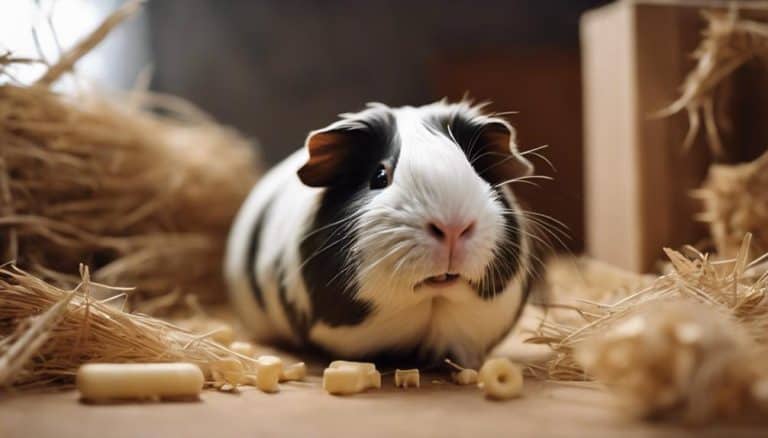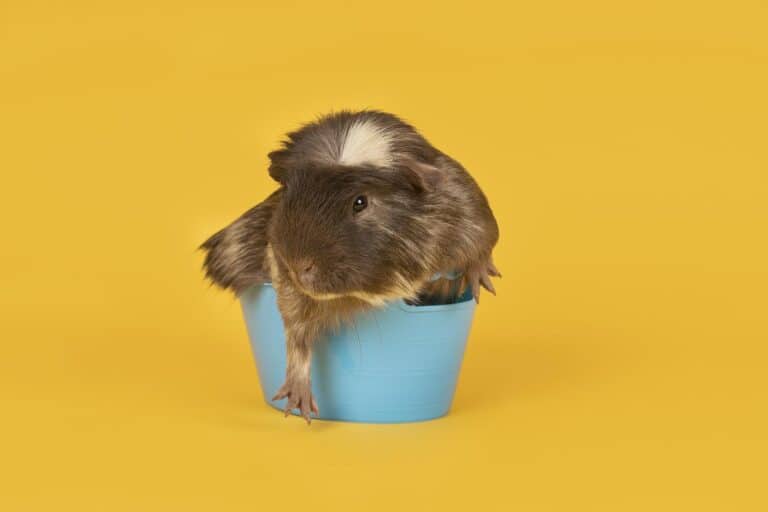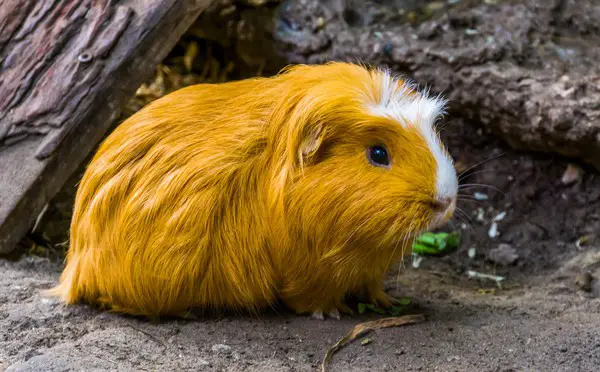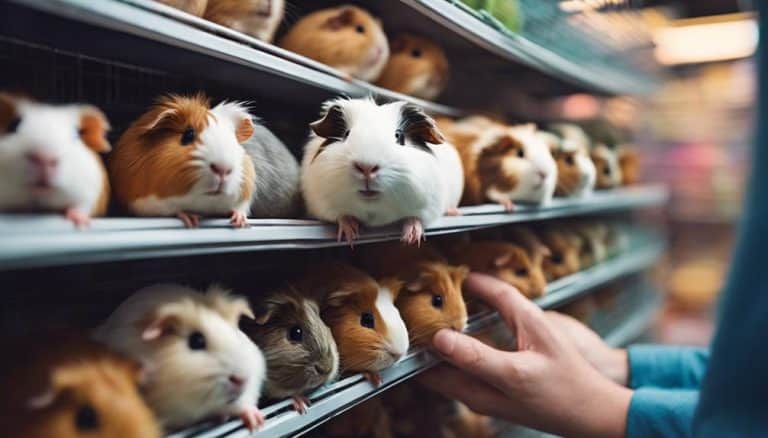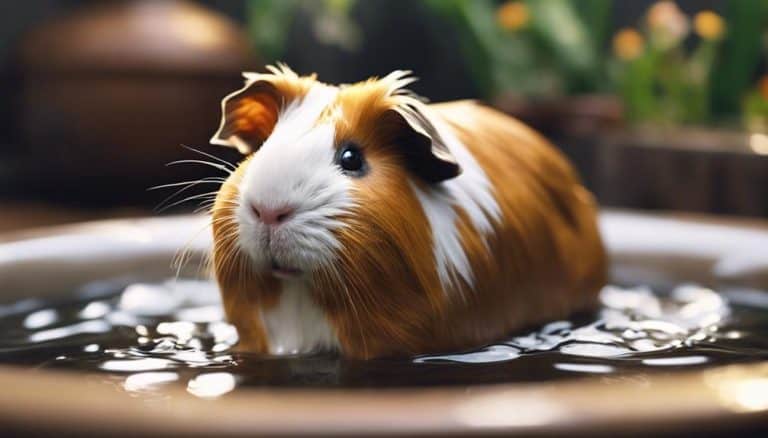how many babies do guinea pigs have ?
Guinea pigs are adorable, small mammals that make wonderful pets. They are known for their outgoing personalities and friendly nature.
But how many babies do guinea pigs have? It depends on the breed of guinea pig and the age of the mother. Generally, pregnant guinea pigs can give birth to anywhere from one to eight baby guinea pigs in a single litter.
Baby guinea pigs, or pups, are usually born after a gestation period of 59 to 72 days. After they are born, pups need to be cared for by their mother until they are weaned at about three weeks old.
Once they reach adulthood, male and female guinea pigs can reproduce and have more litters of pups every two to three months.
When it comes to caring for your pet guinea pig and their litter of pups, it is important to provide them with a safe environment and plenty of food and water so that both mom and her babies can stay healthy.
How Many Babies Can a Guinea Pig Have?
A guinea pig, also called a cavy, can have litters of pups each time it gives birth. A guinea pig litter can consist of anywhere from one to eight pups.
The gestation period for a pregnant sow is typically 72 days, and the average litter size is six pups.
If a guinea pig becomes pregnant at an early age, such as two months old, the subsequent pregnancy may be smaller in size than a litter from an older sow.
The number of guinea pigs you can get from a single litter depends on the pregnancy in guinea pigs and the size of the litter; for example, a sow might give birth to three pups one time and eight another time.
Therefore, it’s hard to determine how many babies a guinea pig can have without knowing how many pups will be born with each subsequent pregnancy.
Generally speaking, however, it is possible for a single guinea pig to produce as many as 8 pups per litter over its lifespan.
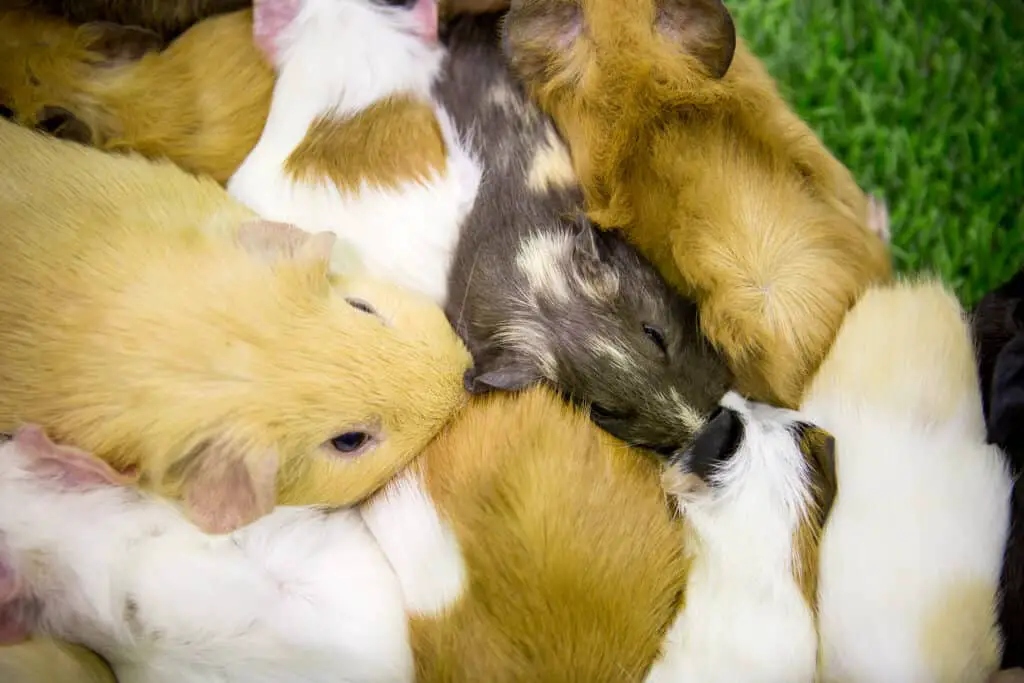
How Many Times Can a Guinea Pig Get Pregnant?
A guinea pig, also known as a sow, can give birth to multiple litters throughout its life. A guinea pig pregnancy typically lasts from 59 to 72 days and the average litter size is three pups.
The number of pregnancies a guinea pig experiences depends on a few factors such as its age and health, but it is generally recommended that you do not let your guinea pig become pregnant more than twice in its lifetime.
That being said, it is possible for a single sow to have up to four litters in one year if she is healthy and well taken care of. It is important to monitor your guinea pig’s health while they are pregnant and be sure they are receiving proper nutrition and exercise.
If you properly care for them during their pregnancies, then they should have no problem giving birth safely and successfully multiple times throughout their lifetime.
How Soon Can a Guinea Pig Get Pregnant Again?
A guinea pig can get pregnant again very soon after giving birth.
In fact, a female guinea pig can become pregnant again as soon as 15 hours after giving birth. This means that if two male and female guinea pigs are housed together, a female could become pregnant at the same time she is nursing her newborn pup.
This isn’t recommended however, as it puts additional stress on the mother guinea pig and can cause health issues for both her and her pup.
It’s best to wait until the mother guinea pig has finished nursing her pups before allowing them to breed again.
By doing so, you’ll ensure that your guinea pigs remain healthy, and you’ll be able to avoid any challenges that may arise from having too many pups in one litter!
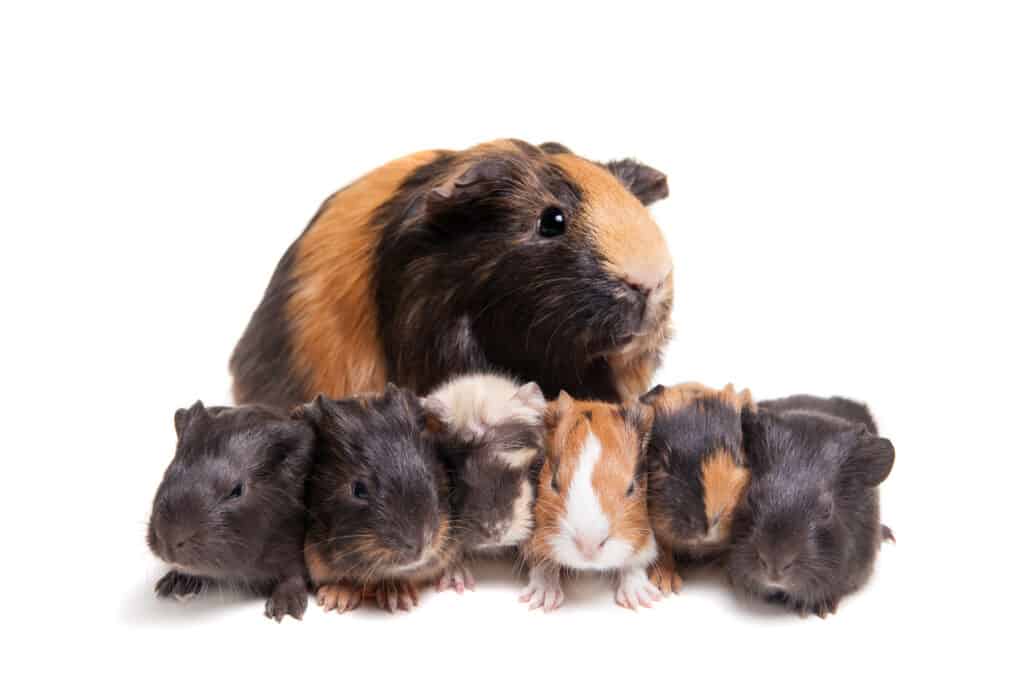
How to Care for a Pregnant Guinea Pig?
Caring for a pregnant guinea pig is essential to maintain its health and ensure that the pregnancy goes as smoothly as possible.
Firstly, provide extra nutrition including fresh vegetables, hay and vitamin C supplements, as well as plenty of fresh water.
Secondly, keep your guinea pig in a clean and comfortable environment. The cage should be spacious enough to have a place for the guinea pig to rest, play and move around.
Thirdly, handle your guinea pig gently during her pregnancy; avoid scaring or stressing her out.
Lastly, take your pregnant guinea pig to the vet for regular checkups during her pregnancy so that any health issues can be addressed immediately.
Taking these steps will help ensure that your guinea pig is healthy throughout her pregnancy and can give birth to healthy babies!
How Can You Tell if a Guinea Pig Is Pregnant?
If you own a guinea pig, you may be wondering if your female guinea pig is pregnant. The gestation period of a pregnant sow is typically between 59 and 72 days, depending on the breed.
During this time it can be difficult to tell if a guinea pig is pregnant without an examination from a vet.
To determine whether or not your female guinea pig is pregnant, start by feeling her abdomen for any hard lumps that could indicate pregnancy.
If she has no lumps or bumps, then look out for signs such as weight gain, decreased appetite and increased nesting behaviour.
In addition, male guinea pigs should be kept away from pregnant sows during the gestation period in order to reduce the risk of unwanted pregnancies.
If you think your guinea pig is pregnant, contact your vet for further advice and support to ensure the health of both mother and baby!
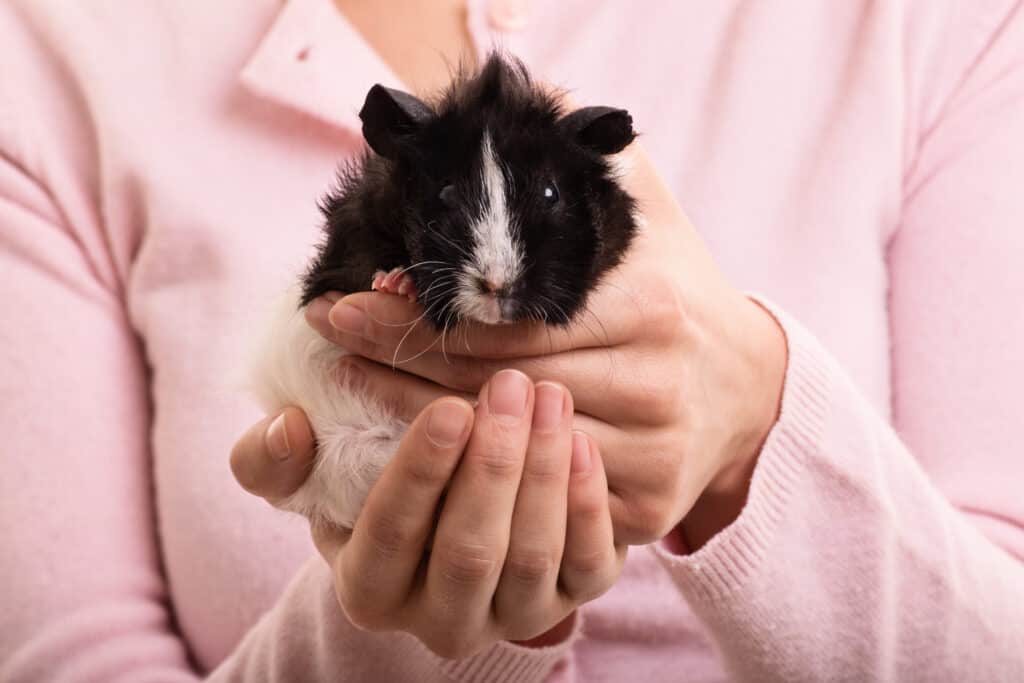
What to Feed My Guinea Pig During Pregnancy?
When a guinea pig is pregnant, it’s important to provide her with the right diet and nutrition for her and her developing pups.
During the pregnancy, a pregnant sow needs more food than usual, so it’s important to monitor how much she eats.
As the gestation period progresses, she will need more vitamins, minerals and protein in order to feed her growing pups.
The best way to provide this is through hay and fresh vegetables like carrots, broccoli and spinach.
You can also feed your pregnant female guinea pig specially formulated pellets that are high in vitamins, protein and other nutrients. This type of food should be given during the entire pregnancy as well as after she gives birth.
Many guinea pigs also enjoy treats like apples or raisins but these should be limited since they tend to be high in sugar.
With the right nutrition, your pregnant sow will have plenty of energy throughout her pregnancy so that she can give birth to healthy pups!
Should I Separate My Pregnant Guinea Pig?
When it comes to separating a pregnant guinea pig, the answer is yes.
It is very important to separate the pregnant female guinea pig from the male guinea pig for her safety and so that she can give birth in peace.
Pregnancy in guinea pigs can last anywhere from 59 to 72 days, and during this time, it is important for the pregnant female to be kept away from any potential stress factors such as other animals or loud noises.
She should also have a quiet place where she can give birth free of any disturbances.
Additionally, if the male guinea pig still remains with the pregnant female, there is a risk of him impregnating her again during pregnancy which could put both mother and babies at risk.
Therefore, it is highly recommended that you separate your pregnant female guinea pig from its mate when she shows signs of being pregnant.
Can the Father Guinea Pig Be with the Babies?
When it comes to the question of whether the father guinea pig can be with the babies, the answer is both yes and no.
Guinea pigs are a type of rodent, and male and female guinea pigs are referred to as sows (females) and boars (males).
When a sow is pregnant, she will give birth to a litter of baby guinea pigs. Male guinea pigs can be with their newborn babies if they live in an area where there is no danger from predators.
However, if a male guinea pig is placed in a cage with his female partner or another female cavy while she is pregnant, he may cause her stress which could result in complications during her pregnancy.
Additionally, male cavies may become too rough when playing with young guinea pigs due to their natural instincts. Therefore it is often recommended that male guineas not be allowed around newborn baby guineas or the pregnant sow during her pregnancy.
In conclusion, the father guinea pig should not be with the mother or babies during pregnancy or shortly after giving birth; however, once baby guineas are old enough to play safely with their father they can enjoy each other’s company.


